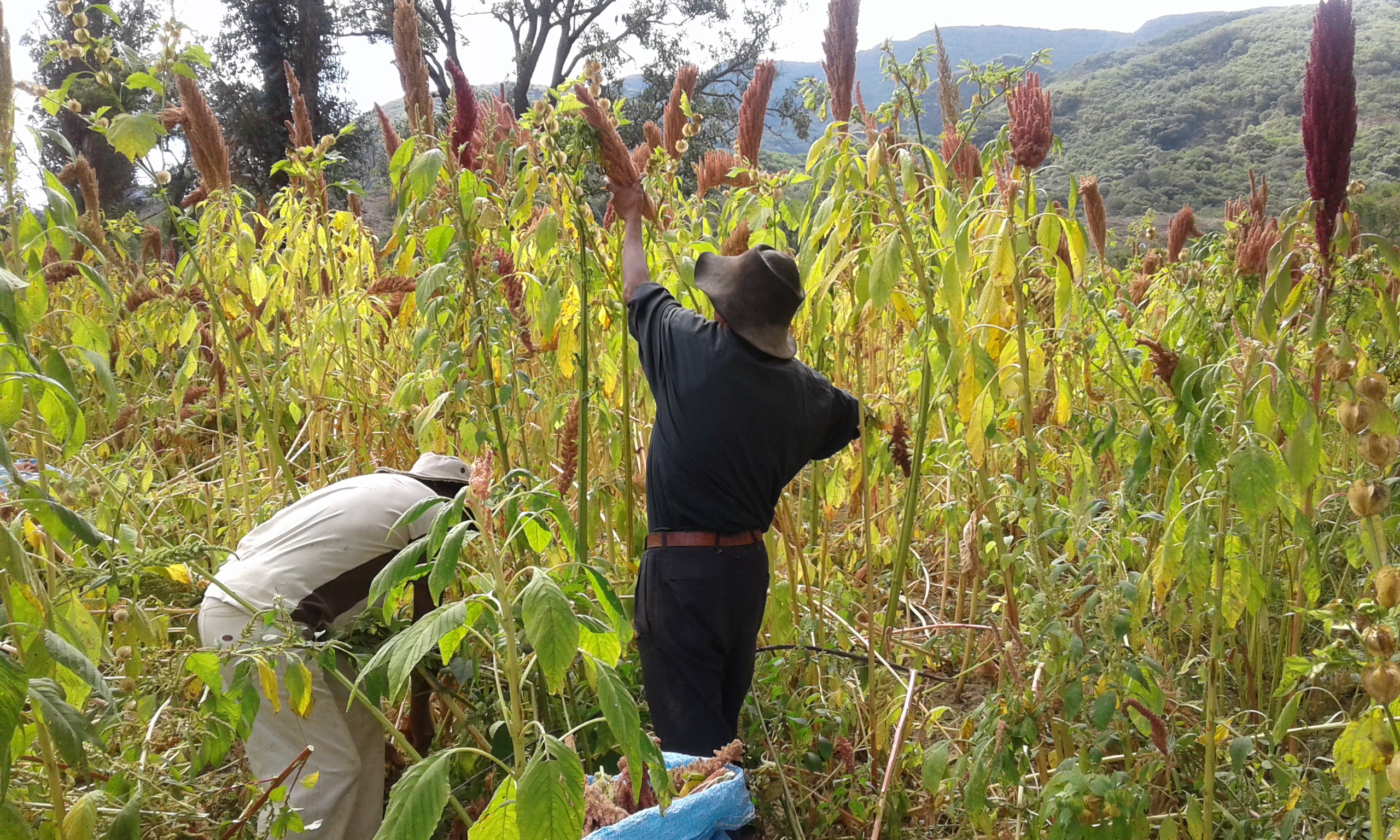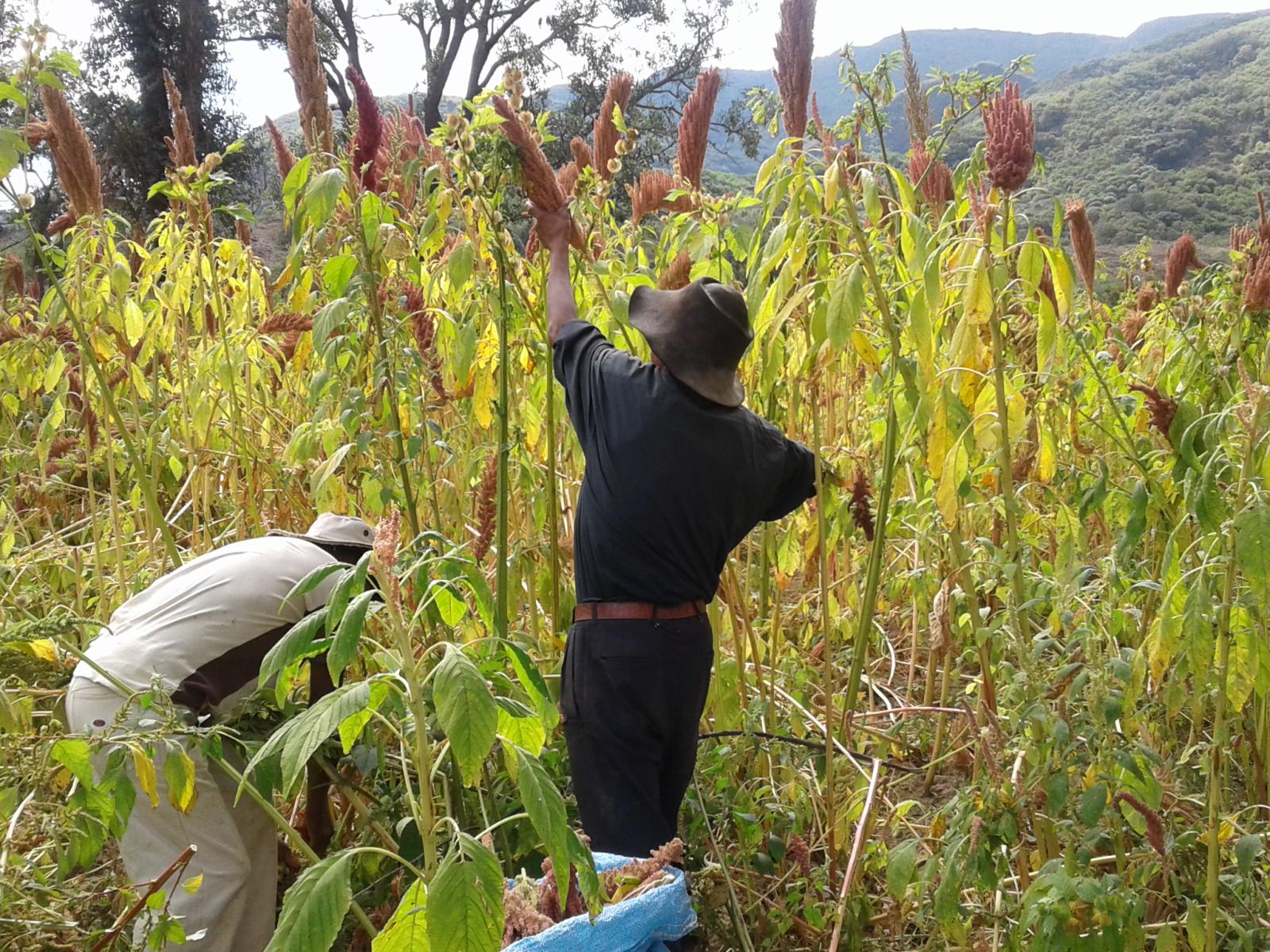An Overview Of Our Solution
- Population Impacted:
- Continent: South America
Organization type
Population impacted
Size of agricultural area
Production quantity
People employed
Describe your solution
Describe your implementation
External connections
What is the environmental or ecological challenge you are targeting with your solution?
Describe the context in which you are operating
Rural to urban migration in the Andean Plateau is affecting the social fabric of rural communities, which in highland Bolivia is traditionally tied to agriculture. Young people are overwhelmingly seeking employment in the city and it is estimated that 95% of people currently involved in farming associations are over 40 years old. For those who remain, lack of market opportunities for local varieties of amaranth has led to reliance on more intensive production of imported varieties, such as the Oscar Blanco. Even so, it is difficult to compete with the higher yields obtained in Peru and India and producers are forced to accept low and volatile prices (e.g. from 2014 to 2016 Oscar Blanco price for a 46-kilo bag dropped dramatically from 900 to 350 bolivianos). Quality traditional crops do not always fetch a higher price than conventionally farmed crops, but this is changing with increasing consumer awareness.
Although amaranth has been produced and consumed in the Andean plateau for many generations, the possibilities for marketing this nutritious and versatile seed have not been fully exploited. The total potential market demand for Bolivian amaranth is estimated at 1.828 tonnes globally, of which 729 tonnes from conventional agriculture needed for internal consumption and a further 1.098 tonnes of organic produce destined for the export market. Only 499 tonnes of Bolivian amaranth were offered on the domestic market in 2014, of which only 10% was organic.
How did you impact natural resource use and greenhouse gas emissions?
Social/Community
Water
Food Security/Nutrition
Economic/Sustainable Development
Climate
Sustainability
Local demand for black amaranth by small local and regional companies, together with the awareness raising and promotional activities implemented, guarantee long-term economic sustainability to the project.
These small companies are interested in black amaranth also to include it in the School Breakfast program, which is funded and sponsored by municipal governments, offering a big and long-term market opportunity. Local consumption is on the rise as well, thanks also to the trainings on how to cook and couple black amaranth with other foods.
The quality and adequate quantity of seeds is ensured by those of the local producers who have been capacitated as seeders by the project.
Return on investment
Entrant Image

Entrant Banner Image

